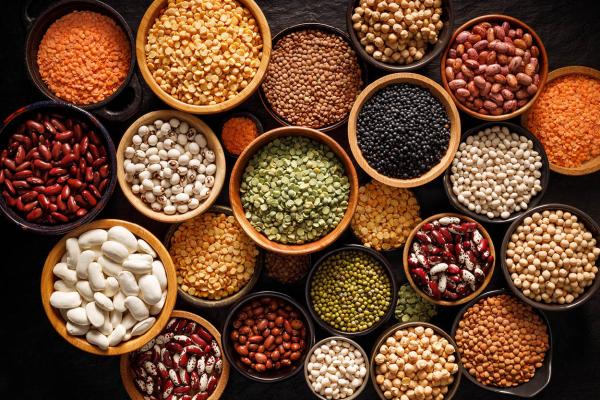The report
The European Commission is exploring how to harness the potential of EU plant protein production, responding to the needs of farmers, producers and consumers.
The production and sourcing of plant proteins for the agri-food sector has repeatedly stimulated political debate at EU level. The report on the development of plant proteins in the EU reviews the supply and demand situation for plant proteins and explores the possibilities to further develop their production in an economically and environmentally sound way. It also summarises the analysis of the protein sector in the EU, carried out by the Commission.
Background
A stakeholder survey was launched in February 2018 to assess the current situation in the EU. The Commission then set up four workshops on plant proteins to discuss research and innovation, agronomic practices and environmental benefits, the supply chain in the EU sector and the demand in different market segments. In November 2018 in the course of a high-level conference, the report was presented and discussed.
The most common protein-rich plants are soybeans, legumes (grain and fodder) and oilseeds. A good source of amino acids for livestock, plant proteins are a vital component of animal feed, and are essential to EU farming. In addition, they are increasingly consumed as human food, with an annual growth rate of almost 7% globally. However, the EU has a major deficit in plant proteins, importing most of what the EU agricultural sector needs.
In addition to being of economic benefit for farmers and producers of food and animal feed, the development of plant protein production in the EU also carries a range of environmental benefits. In particular, protein crops contribute to fixing the atmosphere’s nitrogen in the soil and therefore play an important role in a more sustainable nutrient cycle.
Nonetheless, some difficulties in the development of the EU plant protein sector have already been identified, including:
- the agronomic conditions in Europe, which are not optimal for large-scale production of plant proteins;
- the economic profitability of these crops in Europe;
- the competitiveness of EU protein crops compared to imported plant proteins;
- competition over the use of arable land;
- a lack of research on breeding, agronomic practices and different uses.
The common agricultural policy already provides a series of measures which have, directly or indirectly, encouraged plant protein production in the EU in recent years. This includes greening measures which promote ecological focus areas and crop diversification, voluntary coupled support, and research and innovation through initiatives like the EIP-AGRI focus group.
High-level conference
On 22 and 23 November 2018, the report was presented and discussed at a high-level conference organised in Vienna, Austria. The event was co-organised by the Austrian presidency of the EU, and the European Parliament contributed to the discussion.
Stakeholder survey
The preparations for the report on the development of plant proteins in Europe started with a stakeholder survey. Its outcome revealed a large amount of interest in the topic throughout the EU. Overall, more than 440 experts in the field from 26 EU countries replied to the questionnaire. The survey also confirmed that the development of plant proteins in Europe should be a joint effort between the authorities, farmers and industry.

